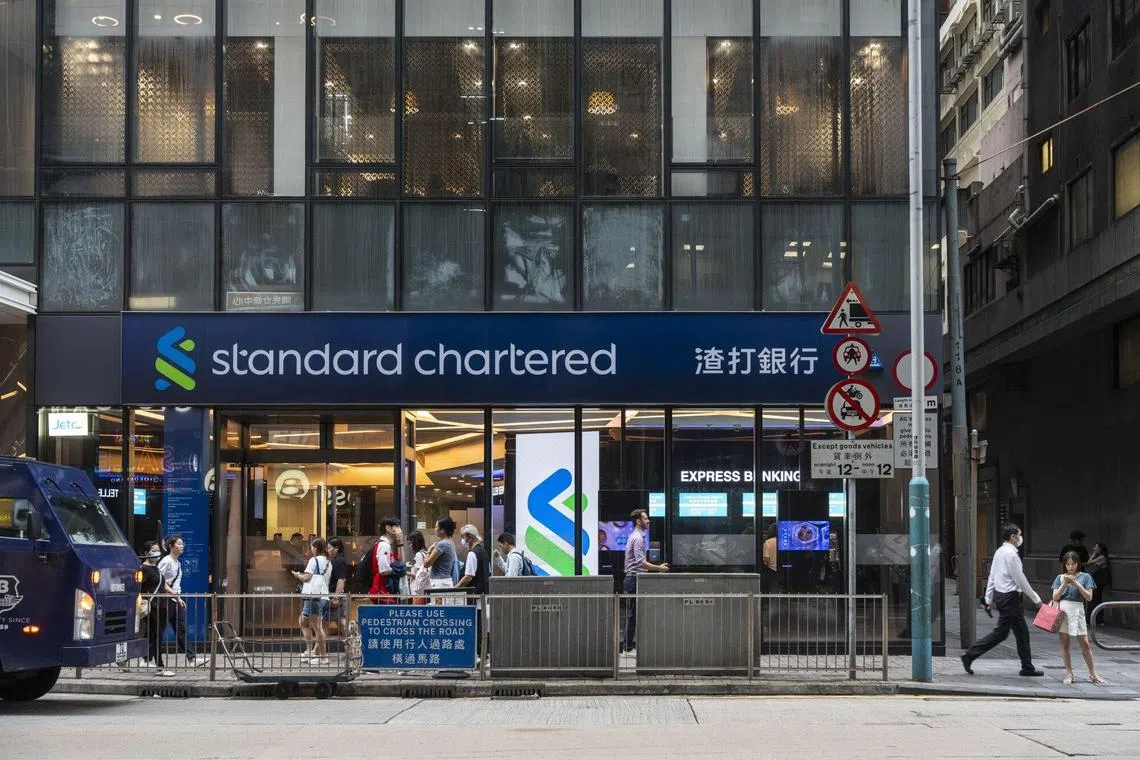StanChart expands share buyback as pre-tax profit beats estimate
Sign up now: Get ST's newsletters delivered to your inbox

The bank plans to buy back an additional US$1.5 billion of shares as it looks to return a total of US$5 billion to shareholders by 2026.
PHOTO: BLOOMBERG
LONDON - Standard Chartered expanded its multibillion-dollar share buyback programme as the bank reported a rise in pre-tax profits driven by its wealth business.
The London-headquartered lender said on July 30 that it will buy back an additional US$1.5 billion (S$2 billion) of shares as it looks to return a total of US$5 billion to shareholders by 2026.
It reported a second quarter pre-tax profit of US$1.83 billion, beating analyst estimates of US$1.6 billion. The lender raised its outlook for income growth and is now expecting operating income to rise more than 7 per cent in 2024.
Operating income from wealth solutions jumped 25 per cent, thanks to net new sales and affluent new customers.
“We produced a strong set of results for the first half of the year, demonstrating the value of our franchise as a cross-border corporate and investment bank and a leading wealth manager for affluent clients,” chief executive Bill Winters said in a statement.
StanChart is in the midst of a fresh cost-cutting programme called Fit For Growth that aims to save the bank about US$1.5 billion over the next three years. The plan incorporates more than 200 individual initiatives within the company that are aimed at trimming annual expenses by anything from a few hundred thousand to millions of dollars.
Operating expenses in the second quarter slid due to lower investment spending. The bank has pledged to cap annual costs at US$12 billion in 2026 against a base of US$11.1 billion in 2023.
Around 50 per cent of the Fit For Growth projects identified are “in execution” or ready to start, with the plan to have them all in execution by the end of 2024, the lender said.
The bank has already embarked on a revamp of the management in its corporate and investment banking arm. The changes include stripping out layers of regional management to speed up decision-making and make managers more accountable for the performance of their businesses.
For Mr Winters, the shake-up comes in his 10th year as boss of the emerging markets-focused bank, a tenure that makes him the longest-serving CEO of any major Britain-based lender.
He has in the past played down talks of him leaving the bank any time soon, telling reporters three years ago that “the job is not yet done”. BLOOMBERG


